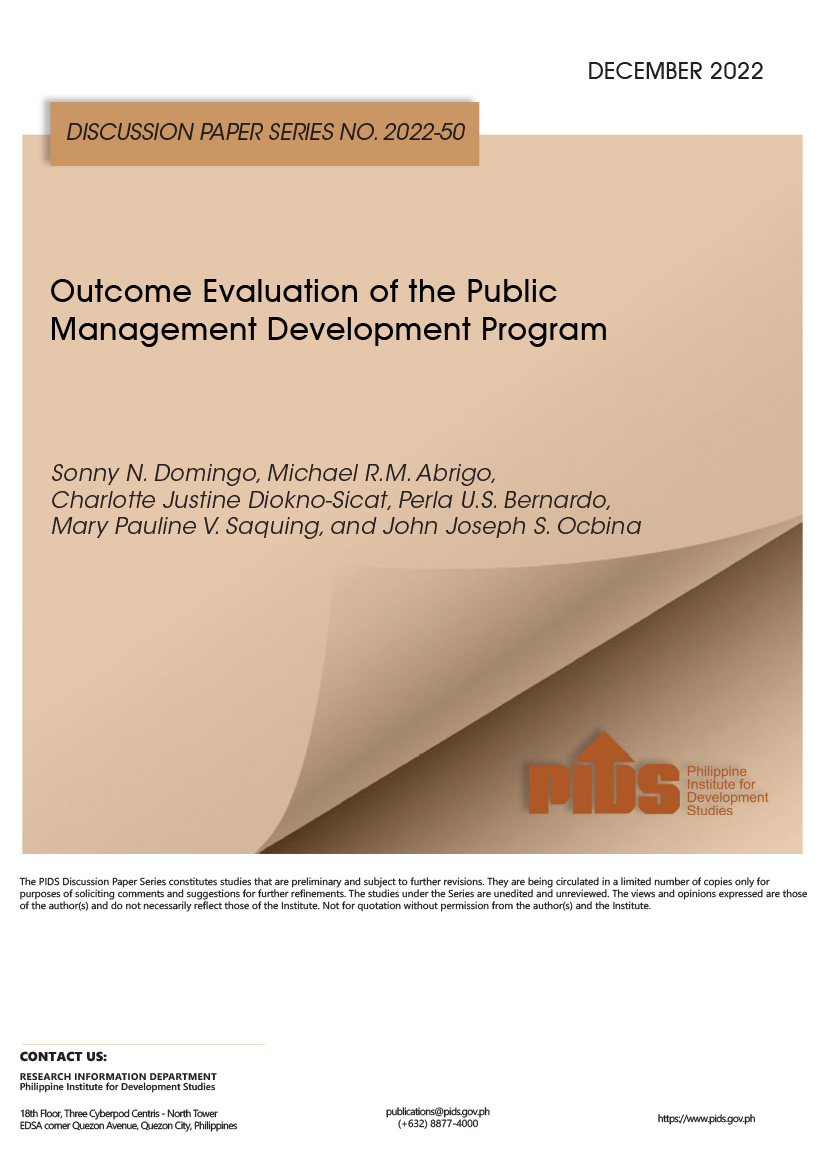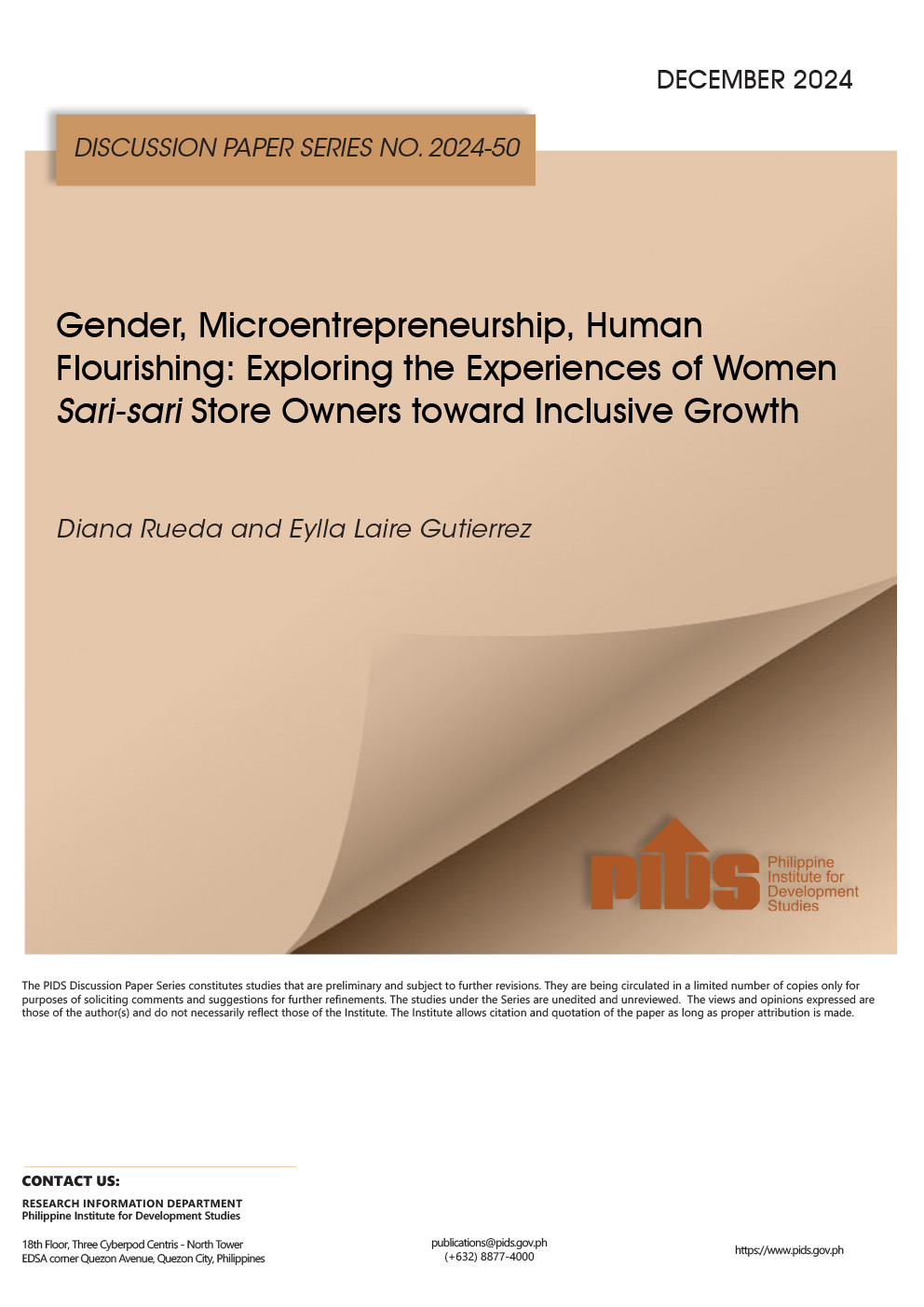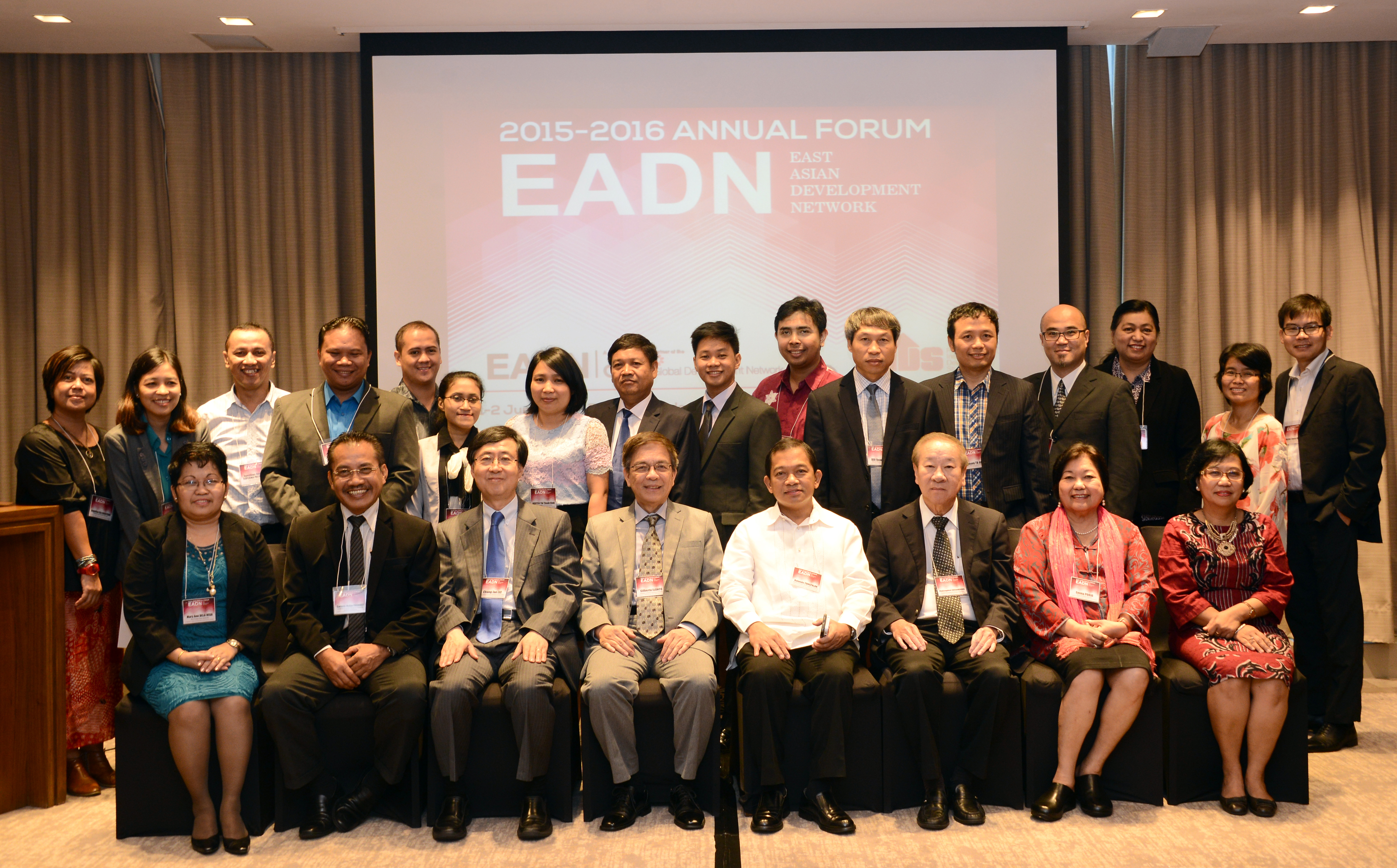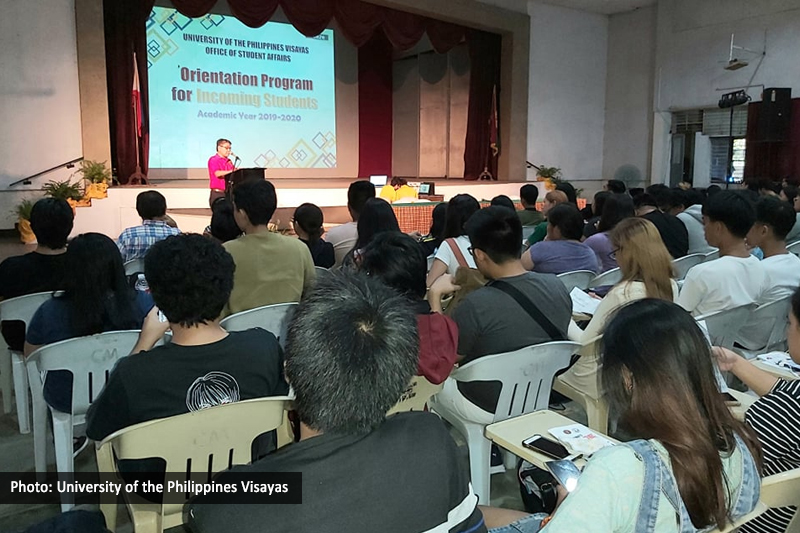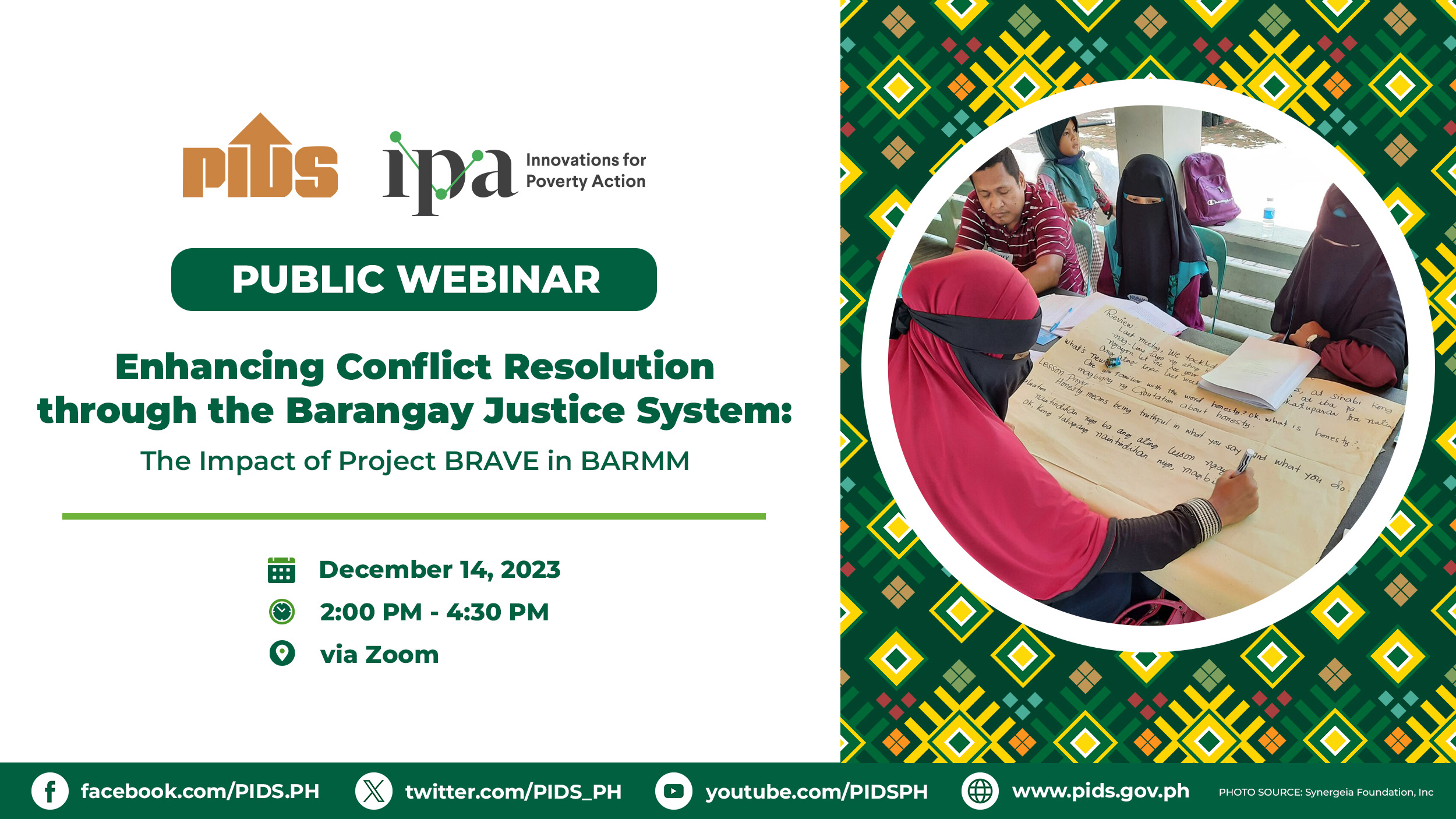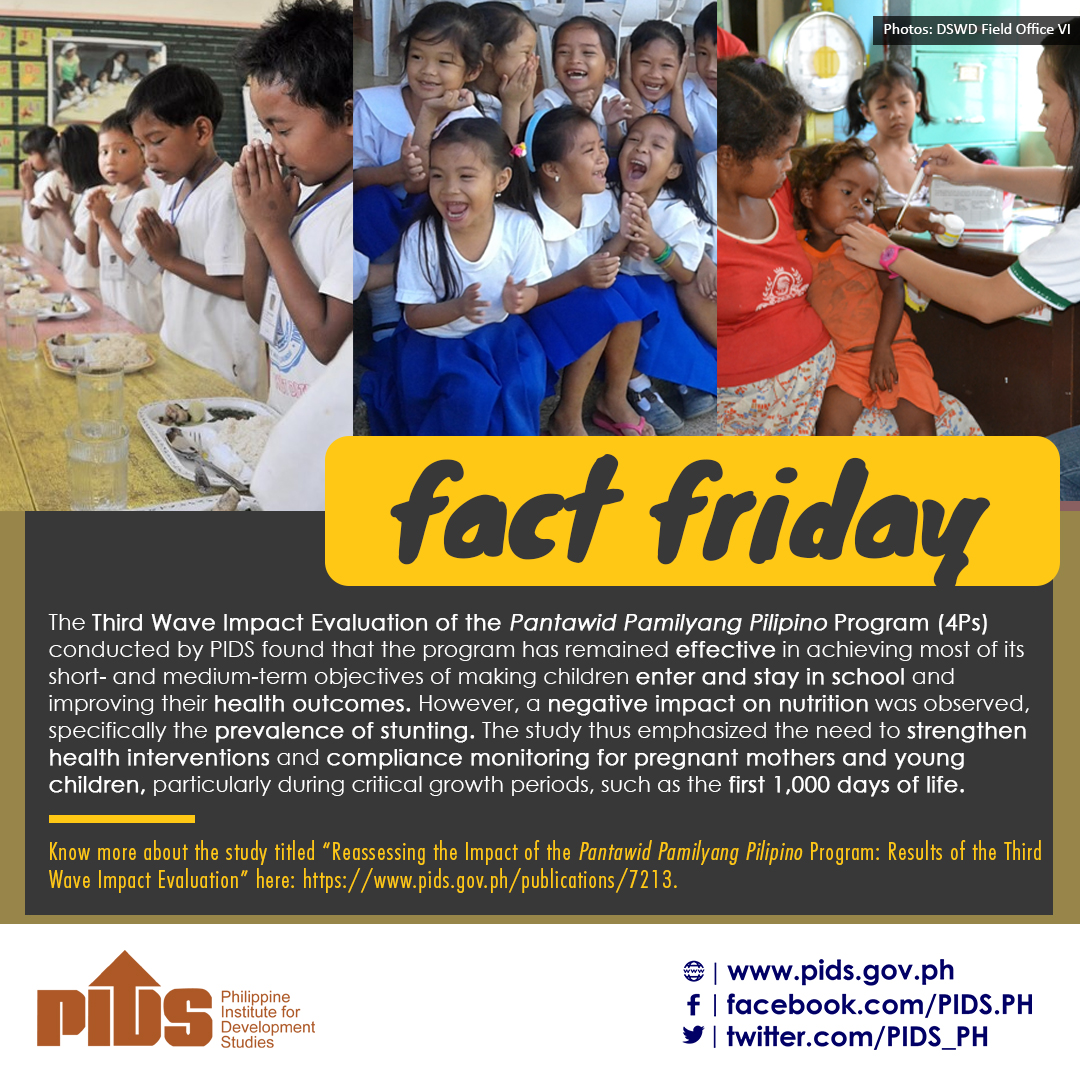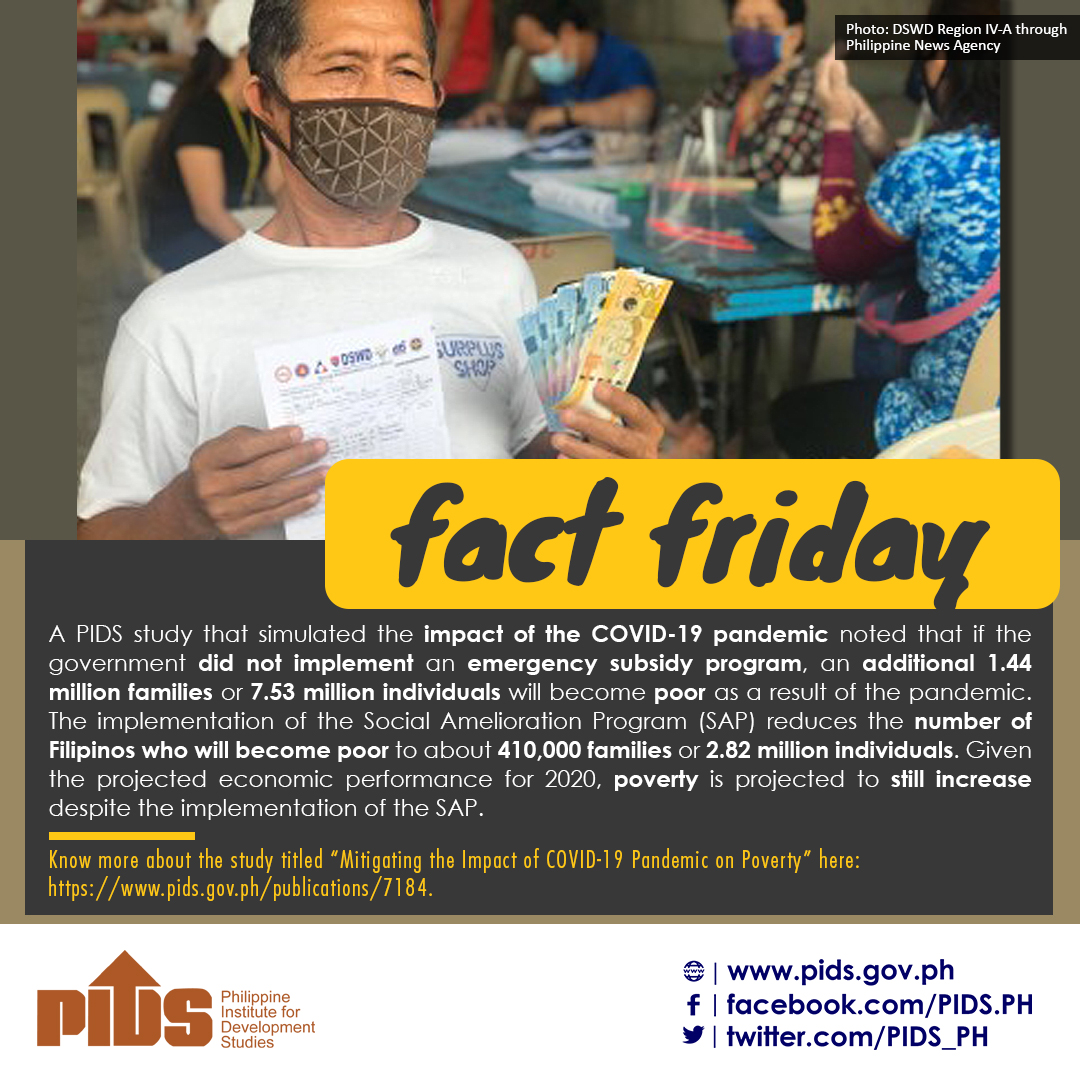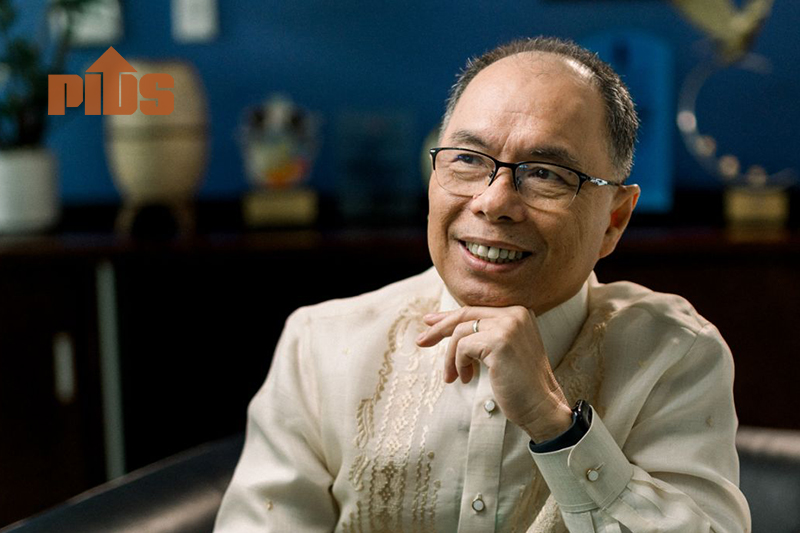
When Dr. Aniceto “Babes” C. Orbeta, Jr. took the helm of the Philippine Institute for Development Studies (PIDS) in August 2021, the country was still reeling from the pandemic. Yet behind his soft-spoken demeanor lay a firm resolve: to steer the Institute through uncertain times using the steady compass of evidence-based solutions and a bold embrace of digital transformation. Over the next four years, he strategically built partnerships, defended research in the halls of Congress, spearheaded the development of digital tools and integrated information systems, and mentored the next generation of policy researchers.
His steadfast leadership did not go unnoticed. Department of Economy, Planning and Development Secretary and PIDS Board of Trustees Chairperson Arsenio M. Balisacan acknowledged the weight of the moment and the significance of Dr. Orbeta’s stewardship.
“Leading the capable research staff, you started building and connecting with stakeholders in the country and the world, to step up and make the Institute even more influential and effective in its mandate,” Secretary Balisacan said during the leadership turnover ceremony.
During Dr. Orbeta’s term, PIDS steered its research agenda toward inclusive development. The Institute completed 239 research projects, published eight books, eight volumes of the Philippine Journal of Development with a total of 39 articles, 206 discussion papers, and 62 policy notes. These outputs not only enriched the Institute’s intellectual contributions but also served as direct inputs to public policy.
A critical part of this impact came from deepening collaboration. In 2024 alone, PIDS has 19 forged partnerships between research partners, such as University of the Philippines (UP), Intellectual Property Office of the Philippines (IPOPHL), Department of Information and Communications Technology (DICT), Bangko Sentral ng Pilipinas (BSP), Department of Health (DOH), Philippine Health Insurance Corporation (PhilHealth), Department of Trade and Industry (DTI), Institute of Policy Studies of Sri Lanka, among others.
Recognizing the importance of broadening the reach of evidence-based research, Dr. Orbeta also strengthened the Institute’s public visibility. During his presidency, PIDS conducted 130 public events attended by over 30,000 people to popularize research findings and encourage evidence-based policymaking. The institute also increased its digital footprint to YouTube, LinkedIn, and TikTok, reaching newer and more diverse audiences. Facebook followers increased by 48 percent, while daily website visits surged by 250% -- clear signs that the Institute’s policy messages were resonating beyond the usual circles.
Dr. Orbeta’s leadership also shaped several key national reforms. Under the Second Congressional Commission on Education (EDCOM II), PIDS studies became foundational to legislative and programmatic recommendations for the education sector.
"EDCOM 2 welcomes the findings of the study conducted by PIDS. Our recommendations on the programmatic and legislative reforms to our education systems are based on empirical evidence from these kinds of studies," said EDCOM 2 Executive Director Karol Mark Yee in a press release.
Dr. Orbeta also spearheaded PIDS’ statutory evaluation of the Pantawid Pamilyang Pilipino Program (4Ps), mandated under Republic Act No. 11310 – a cornerstone in assessing the impact of conditional cash transfers on Filipino families. He is a recipient of the 2025 NAST Outstanding Book/Monograph Award for his study entitled “Reassessing the Impact of the Pantawid Pamilyang Pilipino Program: Results of the Third Wave Impact Evaluation.”
Beyond these mandates, his term helped address pressing structural governance and regional development issues. Under his leadership, PIDS produced critical analyses of energy security, the implementation of the Mandanas-Garcia ruling, metropolitan governance arrangements, and the impact of infrastructure investments on internal migration.
However, to those who worked closely with him, Dr. Orbeta’s most enduring legacy was the way he embodied integrity in a space too often shaped by political pressure. He openly acknowledged the difficult moments when defending the Institute’s work in challenging circumstances.
“If we cannot say things independently, we become somebody else’s mouthpiece. Our capacity to speak the truth is based on evidence and logic,” he reminded his colleagues during a send-off gathering.
He strengthened the Institute by mentoring young researchers and reinforcing PIDS’ core values of rigor, ethics, and service. PIDS fellows recall him as a quiet, but influential leader – never one for grand gestures, but always present when it mattered.
To which he responded, “I didn’t know I was mentoring people. I was just doing my job.”
Dr. Michael Abrigo, one of the senior research fellows who was recognized by the NAST as one of the 2022 Outstanding Young Scientist in Economics, shared how Dr. Orbeta encouraged and mentored him when he was still a young research analyst.
Meanwhile, Dr. Francis Mark Quimba, another senior research fellow, recalled Dr. Orbeta’s advice on leveraging technology for research and documentation: “You will forget things, but your cellphone will not.”
Despite his long and impressive list of accomplishments, Dr. Orbeta remained grounded, often emphasizing that his time as PIDS President taught him invaluable lessons he could not have learned anywhere else.
“I learned more about people and myself that no post-doctoral program can offer. Thank you for educating me for free and while on payroll,” he said.
As he steps down, Dr. Orbeta leaves not just an impressive catalogue of research and reforms, but also a deeper institutional ethos rooted in quiet rigor, principled leadership, and a deep respect for public service.
“The real mandate of PIDS is to argue for public interest,” he said. And in the face of noise, doubt, and complexity, that’s exactly what he did. –AABM
This article is Part 1 of the two-part PIDS in Transition feature series. Stay tuned for Part 2, which highlights the vision and leadership of the new PIDS President, Dr. Philip Arnold P. Tuaño.

